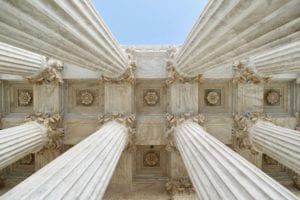 In a clear and well-reasoned opinion issued earlier this year, District Judge Robert N. Scola, Jr. affirmed the Bankruptcy Court’s Judgment denying joint debtors’ claimed homestead exemption in a Miami condominium. The decision provides lessons for avoiding the potential pitfalls faced by debtors who acquire post-petition assets and may consider avoiding their ongoing, post-petition disclosure obligations.
In a clear and well-reasoned opinion issued earlier this year, District Judge Robert N. Scola, Jr. affirmed the Bankruptcy Court’s Judgment denying joint debtors’ claimed homestead exemption in a Miami condominium. The decision provides lessons for avoiding the potential pitfalls faced by debtors who acquire post-petition assets and may consider avoiding their ongoing, post-petition disclosure obligations.
The fact pattern of the case is relatively straightforward. The husband-and-wife debtors were living in unit 204 of their Miami Lakes condominium when they filed their Chapter 13 petition in August 2013, listing that unit as their Florida constitutionally exempt homestead. Four months later, i.e., within 180 days of the petition date, the debtor-wife’s mother died, leaving her unit in the same building, unit 106, to her daughter. The debtors continued living in unit 204 for approximately two years post-petition, until their unit was foreclosed, and they moved into unit 106. They did not immediately disclose their acquisition of unit 106 in the bankruptcy case and instead waited five years until April 2019 when they converted their bankruptcy case to Chapter 7. When they claimed unit 106 on their amended schedules as their new exempt homestead, the trustee objected.
In affirming the bankruptcy court’s denial of their claimed exemption on unit 106, the District Court followed the text of the Code and Florida law and rejected the debtors’ equitable arguments. First, the Court reasoned that because the debtors acquired unit 106 by inheritance within 180 days of the commencement of the bankruptcy case, it was property of the estate pursuant to 11 USC s. 541(a)(5)(A). That Code section provides that when, within 180 days of filing a petition, a “debtor acquires or becomes entitled to acquire . . . by bequest, devise, or inheritance,” “[a]ny interest in property that would have been property of the estate if such interest had been an interest of the debtor on the date of the filing of the petition.” Since the debtor-wife became entitled to acquire unit 106 within 128 days after the August 2013 petition date, it was “unquestionably property of the bankruptcy estate.”
Next, the Court dealt with the issue of conversion and its effect on unit 106. Relying upon Code section 348(f)(1)(A), the Court noted that property of the estate in a converted case “consists of ‘property of the estate, as of the date of filing of the petition, that remains in the possession of or is under control of the debtor on the date of conversion.’” In other words, conversion of the case had no effect on the inherited unit 106 becoming property of their bankruptcy estate upon the death and inheritance granted by the debtor-wife’s mother.
More importantly for the debtors, however, was the question of whether they could validly claim unit 106 as their homestead. Citing section 522(b)(3)(A) and Florida law, the court reasoned that the Debtors could not, because exemptions are determined as of the commencement of the case. In Florida, a homestead is established by “actual occupancy of the subject property accompanied by the intent to reside in the property as one’s homestead” and “ownership of the claimed homestead property.” Here, the debtors neither owned nor occupied unit 106 on the petition date.
Finally, the Court gave short shrift to the debtors’ equitable arguments. The court noted that the debtors failed to comply with their disclosure obligations under Fed. R. Bankr. P. 1007(h), which required them to file a supplemental schedule disclosing their inheritance of unit 106 within 14 days of learning of that information. Instead, they waited over five years after the debtor-wife’s mother died to disclose their ownership. Additionally, the Court cited several other inequitable factors: (1) they proposed and confirmed a plan that failed to disclose to creditors or the Chapter 13 trustee that they held property that could have been used to fund the plan; (2) they had recently filed a false bankruptcy schedule that failed to list unit 106 as an asset; (3) they submitted income statements that failed to disclose that their $1,600.00 monthly mortgage expenses on unit 204 had been eliminated because of the foreclosure and; (4) failed to submit post-foreclosure income statements disclosing the elimination of their mortgage payment, which had been used to calculate their monthly plan payment. The Court stated that “[n]othing about the record in this case indicates the equities weigh in the Debtors’ favor.”
An observation about the debtors’ conduct in the case. It is clear that they tried to keep their original exempt unit and did not disclose their inherited unit to their creditors and the Chapter 13 trustee. Further, debtors attempted to enjoy a double windfall by confirming a plan while keeping both the income that had been earmarked for mortgage payments on their foreclosed unit as well as keep their new unit away from their creditors. Had they been forthright, they could have abandoned unit 204 upon learning of the inheritance, moved into the new unit and claimed the new unit as exempt or disclosed the foreclosure as a “sale” potentially entitling them to claim a new homestead. Instead, as the Court found, the debtors chose the path of non-disclosure, and in this case, that meant they lost both homes: one to foreclosure and one to their creditors as non-exempt property. Thus, the debtors interests in both units was impaired by their nondisclosure.
This decision can be found at Rodriguez v. Mukamal, S.D. Fla. Case No. 20-20583 (RNS), ECF No. 24, Oct. 1, 2020.
Photo by Jesse Collins on Unsplash
